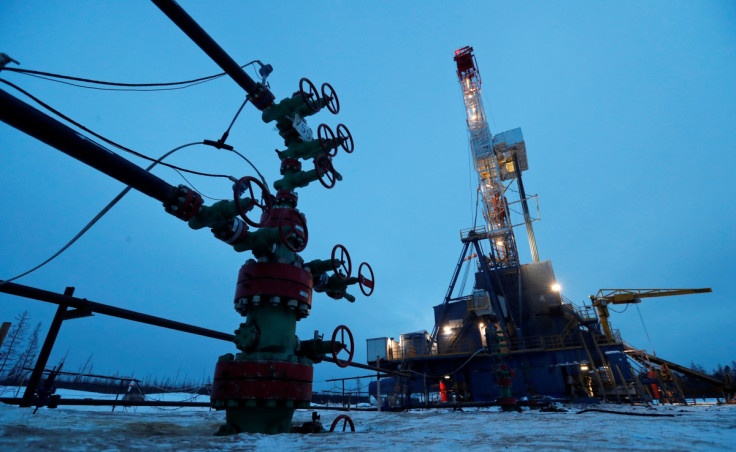China And India Easing Away From Russian Crude Oil May Be Temporary: Russell

There are signs that China and India are pulling back from buying Russian crude oil ahead of the Group of Seven nations' proposed price cap and a European Union ban on imports.
However, the more important question for the market is whether any slowing by China and India of purchases from Russia is a temporary factor that will be reversed once participants figure out how to work with, or around, the price cap.
China, the world's largest crude oil importer, and India, the third-biggest, have increasingly turned to Russian crude this year, buying cargoes at steep discounts as Moscow sought to keep up export volumes after Western countries shunned its oil.
The G7 price cap and the EU ban on imports are aimed at cutting the revenue Russia receives from its exports of crude oil and products and are part of efforts to punish Moscow for its Feb. 24 invasion of Ukraine. Russia calls its actions there "a special operation".
Chinese refiners have begun slowing their purchases of Russian crude for December arrivals, according to traders and industry players in China.
The reduced volumes from Russia for December come after several months of strong imports. China is forecast to bring in 1.80 million barrels per day (bpd) of Russian crude in November, up from October's 1.69 million bpd and in line with September's 1.82 million bpd, according to data compiled by Refinitiv Oil Research.
It is also likely that Russia will overtake Saudi Arabia as China's biggest supplier of crude in November, with the two leading members of the OPEC+ group having swapped the top spot several times so far this year.
INDIA'S APPETITE
Indian refiners are also wary of buying Russian crude beyond the Dec. 5 date of the EU import ban and the proposed price cap. Leading refiners Reliance Industries and state-controlled Bharat Petroleum are pulling back from placing orders, according to two sources familiar with the purchasing plans.
The lower volumes for December follow strong imports by India of Russian crude in recent months. Refinitiv estimates November arrivals at 1.0 million bpd, which would make Russia the top supplier for the month, ahead of Iraq's 960,000 bpd.
The question is whether China and India will once again turn to Russian oil in the new year, or whether the uncertainty created by the price cap and EU ban will linger.
It's likely that both countries will be keen to buy Russian crude, especially if it comes at a steep discount compared to grades from the Middle East and Africa.
But there are several issues that refiners in both countries will have to work around.
Payment and transportation issues such as insurance may become more complex, though it's likely that refiners and traders are smart enough to work out ways to keep doing business.
In fact, the main difficulty may be in sourcing enough vessels to move crude from Russia's western ports through to Asia.
Currently, much of the crude China buys from Russia comes from the eastern ports. Refinitiv data shows that of the 3.42 million tonnes of seaborne oil arriving in November, all but 705,000 tonnes came from Pacific and Arctic ports.
China is expected to import 705,000 tonnes of Russian Urals grade, which was the main grade supplied to European refiners from the country's western ports.
Prior to the attack on Ukraine, China bought only small volumes of Urals crude, but this started to pick up in May, reaching a peak of 739,860 tonnes in June.
The question is whether Russia and China have sufficient tankers in order to increase shipments of Urals crude. These would have to come through the Suez Canal, which limits the size of vessels, or take the long route around the Cape of Good Hope in South Africa.
India, which is closer to Russia's western ports than China, had stepped up its purchases of Urals after the start of the war in Ukraine. It's expected to import 3.13 million tonnes of Urals crude in November, down from the record high of 3.54 million in October, but well above the 135,000 tonnes from November last year.
If Russia wants to boost shipments to China and India, or other potential buyers in Asia, it will have to secure more vessels, or strike deals with importers to use their tanker fleets.
It's this constraint that may limit Russia's exports to Asia, rather than the G7 price cap.
(Editing by Kenneth Maxwell)
© Copyright Thomson Reuters 2025. All rights reserved.





















